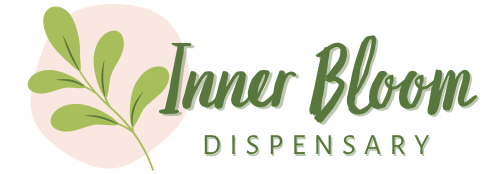In the hustle and bustle of modern life, sleep often takes a backseat to other priorities. Yet, its importance for overall health and well-being cannot be overstated. In this article, we delve into the critical role of sleep in maintaining health, explore specific liquid herbs that can enhance sleep quality, and highlight their scientifically-backed benefits. Let’s discover how you can help your clients achieve restful nights naturally.
The Importance of Sleep for Health and Wellness
Sleep is a fundamental biological process that affects almost every system in the body. During sleep, the body undergoes essential maintenance, repair, and rejuvenation. Poor sleep is linked to a range of health issues, including:
- Cognitive Impairment: Lack of sleep impairs cognitive functions like memory, attention, and decision-making.
- Emotional Instability: Sleep deprivation can lead to mood swings, anxiety, and depression.
- Physical Health Problems: Chronic sleep deficiency is associated with an increased risk of cardiovascular disease, obesity, diabetes, and weakened immune function.
For naturopaths, addressing sleep disturbances holistically can greatly improve a client's quality of life and overall health outcomes.
Liquid Herbs for Enhancing Sleep Quality
Liquid herbal extracts offer a potent and effective way to support sleep, as they are quickly absorbed and easy to dose. Here are some of the most effective liquid herbs for promoting restful sleep, along with interesting facts and scientific research to support their use.
1. Valerian (Valeriana officinalis)
Origins and Historical Use: Valerian is native to Europe and parts of Asia and has been used since ancient times for its sedative and calming properties. In medieval times, it was often used to treat insomnia and anxiety.
Benefits for Sleep: Valerian is known for its ability to improve sleep quality and reduce the time it takes to fall asleep. It works by increasing levels of gamma-aminobutyric acid (GABA) in the brain, a neurotransmitter that promotes relaxation.
Scientific Backing: A review of studies published in the "Journal of Evidence-Based Integrative Medicine" found that valerian significantly improved sleep quality without the side effects commonly associated with pharmaceutical sleep aids.
Interesting Fact: Valerian was so highly valued in medieval Europe that it was sometimes referred to as "all-heal" due to its wide range of therapeutic uses.
2. Chamomile (Matricaria chamomilla)
Origins and Historical Use: Chamomile has been used for thousands of years across various cultures, from ancient Egypt to Roman times, primarily for its calming and anti-inflammatory properties. It's often found in herbal teas designed to promote relaxation.
Benefits for Sleep: Chamomile is well-known for its gentle sedative effects, making it ideal for reducing anxiety and promoting sleep. It contains apigenin, an antioxidant that binds to receptors in the brain that help initiate sleep.
Scientific Backing: A study published in the "Journal of Advanced Nursing" showed that elderly patients who consumed chamomile extract experienced significant improvements in sleep quality.
Interesting Fact: In ancient Egypt, chamomile was dedicated to the sun god Ra and was used in ceremonies to honour him due to its perceived ability to heal fevers.
3. Passionflower (Passiflora incarnata)
Origins and Historical Use: Native to the southeastern United States and Central and South America, passionflower was traditionally used by Native American tribes for its calming effects. It was introduced to Europe in the 16th century and became popular as a remedy for nervous disorders.
Benefits for Sleep: Passionflower is effective in reducing insomnia and anxiety. It enhances the levels of GABA in the brain, which helps to calm the nervous system and promote restful sleep.
Scientific Backing: Research published in "Phytotherapy Research" demonstrated that passionflower significantly improved sleep quality and reduced anxiety in a study of adults with insomnia.
Interesting Fact: Passionflower gets its name from the Passion of Christ, as its flower’s unique structure was believed to symbolise elements of the crucifixion by Spanish missionaries who discovered it in the Americas.
4. Lemon Balm (Melissa officinalis)
Origins and Historical Use: Lemon balm, a member of the mint family, has been used since the Middle Ages to reduce stress and anxiety and promote sleep. It is native to southern Europe and the Mediterranean region.
Benefits for Sleep: Lemon balm has mild sedative properties and is particularly effective when used in combination with other calming herbs like valerian and chamomile. It is also known to improve mood and cognitive function.
Scientific Backing: A study published in the "Mediterranean Journal of Nutrition and Metabolism" found that a combination of lemon balm and valerian root significantly improved sleep quality in children with sleep disturbances.
Interesting Fact: In ancient Greece, lemon balm was used to attract bees, and it was believed to bring good health and longevity to those who cultivated it in their gardens.
5. Lavender (Lavandula angustifolia)
Origins and Historical Use: Lavender is native to the Mediterranean, the Middle East, and India. It has been used for over 2,500 years for its soothing aroma and healing properties. Ancient Egyptians used it in mummification, and the Romans valued it for its scent and calming effects.
Benefits for Sleep: Lavender is renowned for its ability to promote relaxation and improve sleep. Its essential oil is commonly used in aromatherapy to calm the nervous system and enhance sleep quality.
Scientific Backing: A study published in the "Journal of the Medical Association of Thailand" found that lavender oil aromatherapy significantly improved sleep quality in patients in intensive care units.
Interesting Fact: Lavender’s name is derived from the Latin word “lavare,” which means “to wash.” Romans used lavender in their baths for its fragrance and therapeutic benefits.
6. Ashwagandha (Withania somnifera)
Origins and Historical Use: Ashwagandha is an adaptogenic herb native to India and North Africa. It has been a cornerstone of Ayurvedic medicine for over 3,000 years, used to improve energy, reduce stress, and promote overall health and longevity.
Benefits for Sleep: Ashwagandha is particularly effective for improving sleep in individuals with stress-related sleep disturbances. It helps regulate the body's stress response and promotes relaxation by modulating the hypothalamic-pituitary-adrenal (HPA) axis.
Scientific Backing: A study published in "PLOS ONE" indicated that Ashwagandha root extract improved sleep quality and reduced sleep latency in individuals with insomnia.
Interesting Fact: The name “Ashwagandha” translates to “smell of horse” in Sanskrit, referring to the distinct smell of the herb’s root and its traditional use in enhancing strength and vitality.
Practical Tips for Naturopaths to Enhance Sleep with Herbs
As naturopaths, you can guide your clients in integrating these liquid herbs into their daily routines to improve sleep quality. Here are some practical tips:
1. Tailor Recommendations: Assess each client’s unique needs and recommend specific herbs that align with their symptoms and overall health goals.
2. Create Blends: Consider creating custom blends that combine several calming herbs for synergistic effects, such as a mix of valerian, chamomile, and passionflower for those with severe insomnia.
3. Dosage Guidance: Provide clear instructions on the dosage and timing of each liquid herb to maximise its benefits. For instance, taking valerian or chamomile an hour before bedtime can help prepare the body for sleep.
4. Monitor and Adjust: Encourage clients to keep a sleep diary to track their response to the herbs and adjust the regimen as needed based on their feedback and progress.
5. Promote Sleep Hygiene: Alongside herbal recommendations, advise clients on good sleep hygiene practices, such as maintaining a regular sleep schedule, minimising screen time 2-3 hours before sleep, creating a relaxing bedtime routine, and avoiding stimulants before bed.
Final Thoughts
Integrating liquid herbs into naturopathic practice offers a natural and effective way to support sleep and improve overall health. By understanding the unique benefits of herbs like valerian, chamomile, and ashwagandha, you can provide tailored solutions that address the root causes of sleep disturbances.
At Inner Bloom Dispensary, we are dedicated to offering high-quality liquid herbal extracts to support your clients’ journey towards restful nights and vibrant health. For more information on our range of liquid herbs visit Our Dispensary today.

